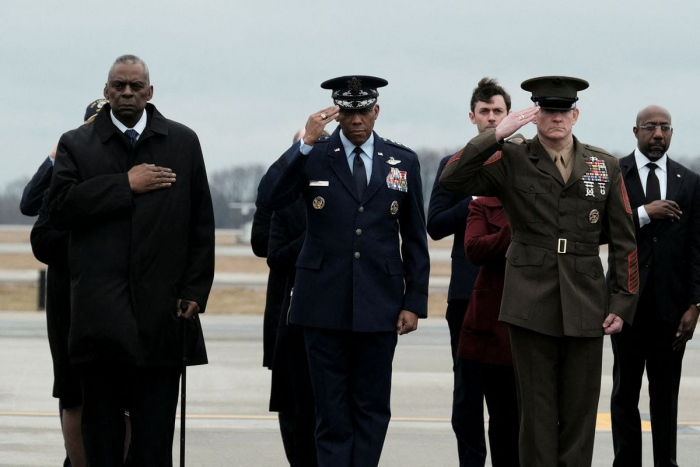More than a month before a deadly drone strike that killed three U.S. soldiers in Jordan, U.S. Defense Secretary Lloyd Austin sought to reassure U.S. troops about the military's ability to withstand attacks by Iran-backed militants.
Austin, in previously unpublished remarks to sailors aboard the Gerald R. Ford aircraft carrier on Dec. 20, said the number one reason the militants had failed to that point was that "they're not very good at what they do."
"Every day, Iranian proxies are shooting at our troops that are in Iraq and Syria. They haven't been effective at all because (of) two reasons: Number one, they're not very good at what they do," Austin told the crew.
"But number two, we've done a lot of things to ensure that we have the adequate force protection ... Eventually, as we all know, they may get lucky one day and cause injury to one of our troops. But we will stay on the balls of our feet and make sure that that doesn't happen."
In the wake of the drone attack, President Joe Biden's administration is vowing to do whatever it takes to protect U.S. troops from an escalating cycle of violence in the Middle East, where Iran-aligned militants are firing at them in Iraq, Syria, Jordan and off the coast of Yemen in the Red Sea.
But current and former U.S. officials tell Reuters the militants' periodic success in attacks may be unavoidable, given the sheer number of drones, rockets and missiles fired at U.S. troops and the fact that base defenses cannot realistically be completely effective 100% of the time.
More about:
















































